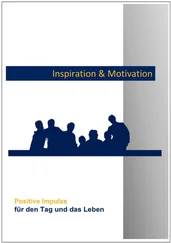Not only can empathy‐induced altruism be harmful to the altruistically motivated person, it can also hurt the target. Balzac, one of our most astute observers of the human condition, graphically portrayed this irony in his classic novel, Pere Goriot (Balzac 1834/1962). Goriot’s selfless love spoiled his daughters, drove them from him, and ultimately destroyed both them and him. Balzac’s message: Altruism may be part of human nature but, like aggression, our altruism must be held carefully in check, lest it prove destructive. Graham Hancock made a similar point in his scathing indictment of international aid programs in Lords of Poverty (1989).
Even when helping is clearly appropriate, empathy‐induced altruism can at times make matters worse. This is especially true when effective help requires a delicate touch. Think of surgeons. It is no accident, argued neurophysiologist Paul MacLean (1967), that surgeons are prohibited from operating on close kin. When operating on one’s sister rather than a stranger, deep feelings of concern and a desperate desire to relieve her suffering may cause a normally steady hand to shake.
Testimony to an especially tragic circumstance in which a warm heart made it more difficult to do what was needed comes from survivors of the death camps in Nazi Europe. In the camps, members of the underground worked to save lives but couldn’t save everyone. At times, they had to decide who would live and who would not. Survivors reported that empathic concern felt for those who had to die made it difficult if not impossible to do what would save more lives. In the words of Terrence Des Pres:
Compassion was seldom possible, self‐pity never. Emotion not only blurred judgment and undermined decisiveness, it jeopardized the life of everyone in the underground … Hard choices had to be made and not everyone was equal to the task, no one less than the kind of person whose goodness was most evident, most admired, but least available for action. (Des Pres, 1976, p. 131)
It can lead to paternalism . As said earlier, the most plausible account of the evolutionary roots of empathy‐induced altruistic motivation seems to be cognitive generalization of human parental nurturance. If true, this account reveals a potentially serious liability. It suggests that a person for whom empathic concern is felt is metaphorically seen as childlike – as dependent, vulnerable, and needing care – at least with regard to the need in question. Consistent with this possibility, research has found that we feel greater empathic concern for more baby‐faced and more vulnerable adults (Dijker, 2001; Lishner, Batson, & Huss, 2011; Lishner, Oceja, Stocks, & Zaspel, 2008).
Sometimes, to be perceived as dependent, vulnerable, and needing care poses no problem. Most of us happily defer to the expertise of physicians, police, and plumbers when we need their help. At other times, the consequences can be tragic. Teachers and tutors can, out of genuine concern, fail to enable students to develop the ability and confidence to solve problems themselves, thereby fostering unnecessary dependence, low self‐esteem, and a reduced sense of efficacy (Nadler, Fisher, & DePaulo, 1983). Physical therapists, physicians, nurses, friends, and family members can do the same for patients with physical or mental disabilities. So can social workers trying to care for the poor and disadvantaged. To see the person in need as dependent and vulnerable may lead to a response that perpetuates if not exacerbates the problem. It may produce paternalism.
Effective parenting requires sensitivity about when to intervene and when to stand back, as well as sensitivity about how to structure the child’s environment to foster coping, confidence, and independence. Effective help requires much the same (J. D. Fisher, Nadler, & DePaulo, 1983). Recall the adage about teaching the hungry to fish rather than giving them fish.
Not all needs evoke empathy‐induced altruism . Many of the pressing social problems we face today don’t involve personal needs of the sort likely to evoke empathic concern. Such concern is felt for individuals, but many of our pressing problems are global. Think of environmental protection, nuclear disarmament, and population control. These problems aren’t encountered as personal needs; they’re broader and more abstract. It’s difficult if not impossible to feel empathy for an abstract concept like the environment, world population, or the planet – although personalizing metaphors like “Mother Earth” may move us in that direction.
Not only is it difficult to evoke empathy for these pressing global needs. Such needs can’t be adequately addressed with a personal helping response. They must be addressed in political arenas and through institutional and bureaucratic structures. The process is long and slow, not the kind of process for which emotion‐based motives, including empathy‐induced altruism, are apt to be very effective (Hardin, 1977). Like other emotions, empathic concern diminishes over time.
Empathy’s limited endurance may also undercut its ability to motivate the sustained helping efforts often required of community‐action volunteers (see Omoto & Snyder, 1995). Empathy‐induced altruism can be effective in initiating volunteer action, but other motives may need to take over if a volunteer is to continue for the long haul.
It can lead to empathy avoidance . What if you don’t want to be altruistically motivated? After all, altruistic motivation can cost you, leading you to spend time, money, and energy on behalf of another. Awareness of this cost may arouse an egoistic motive to avoid feeling empathic concern and the resulting altruistic motive. Shaw, Batson, and Todd (1994) provided evidence that this empathy‐avoidance motive is likely to arise when you are aware – before exposure to a person in need – that (a) you will be asked to help this person and (b) helping will be costly (also see Cameron & Payne, 2011). Empathy avoidance might be aroused, for example, when you see a homeless person on the street, or hear about the plight of refugees, or see news footage of the ravages of famine. It may lead you to cross the street, close your eyes, change channels.
Empathy avoidance may also be a factor in the experience of burnout among those who work in the helping professions (Maslach, 1982). But the conditions for empathy avoidance among helping professional don’t seem to be the ones specified by Shaw et al. (1994). Among professionals, empathy avoidance is more likely to result from the perceived impossibility of providing effective help than from the perceived cost of helping. Aware of the impossibility imposed by limited resources (e.g., insufficient time) or the intractability of the need (e.g., terminal illness), some physicians, chronic‐care nurses, therapists, counselors, and welfare case workers may avoid feeling empathy in order to avoid the frustration of thwarted altruistic motivation (López‐Pérez, Ambrona, Gregory, Stocks, & Oceja, 2013; Stotland, Mathews, Sherman, Hansson, & Richardson, 1978). These professional helpers may view their patients or clients as objects rather than people – and treat them accordingly. Other professionals may, over time, find that their ability to feel empathic concern is exhausted, leading to what has been called compassion fatigue (Figley, 2002). There are limits to how often one can draw from the emotional well. (For some possible antidotes, see Halpern, 2001.)
Empathy avoidance may also occur in response to the suffering of members of the opposition in intergroup conflicts. Whether your opponents are a rival sports team or a national, tribal, or ethnic outgroup, their suffering may be more apt to produce schadenfreude – malicious glee – than empathic concern (Cikara, Bruneau, & Saxe, 2011; Hein, Silani, Preuschoff, Batson, & Singer, 2010).
Читать дальше












